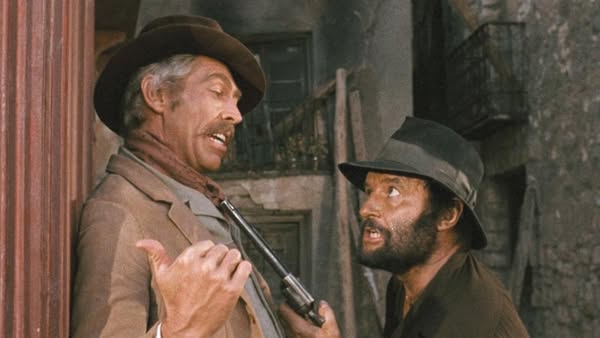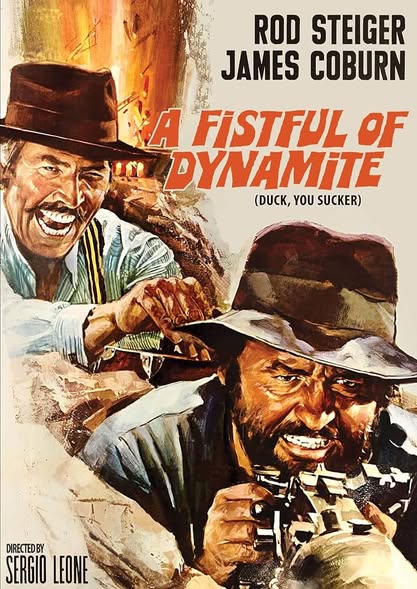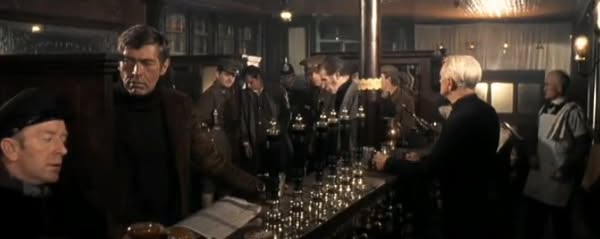Duck, You Sucker! (1971)

Duck, You Sucker! (originally titled A Fistful of Dynamite) is a 1971 spaghetti Western directed by Sergio Leone, known for his iconic contributions to the genre. This film marks a departure from Leone’s earlier work, such as The Good, the Bad and the Ugly, combining elements of action, drama, and a sharp social commentary.
The story follows the unlikely partnership between Juan Miranda (Rod Steiger), a Mexican bandit, and John H. Mallory (James Coburn), an Irish revolutionary. Set against the backdrop of the Mexican Revolution, their paths cross as they become embroiled in a series of events that highlight the chaos and brutality of the time. Juan is motivated by greed and a desire for power, while Mallory seeks to fight against oppression and injustice.

The film is characterized by its rich cinematography and Leone’s distinctive style, which includes sweeping landscapes and intense close-ups. The score, composed by Ennio Morricone, further enhances the film’s emotional depth, blending haunting melodies with rousing themes that capture the characters’ struggles and aspirations.

As the narrative unfolds, Duck, You Sucker! explores themes of friendship, betrayal, and the futility of violence. The relationship between Juan and Mallory evolves from mere convenience to a deeper bond, reflecting the complexities of their motivations and the moral dilemmas they face. The film critiques the romanticism often associated with revolution, portraying the harsh realities of war and its impact on individuals.

Leone’s use of humor and irony adds a unique flavor to the film, balancing moments of intense action with lighter, more absurd elements. The dialogue is sharp and memorable, contributing to the film’s overall tone.
Duck, You Sucker! stands out as a thought-provoking entry in the spaghetti Western genre, combining action and philosophy in a way that invites viewers to reflect on the nature of power and resistance. With its compelling performances, striking visuals, and rich thematic content, the film remains a significant work in Sergio Leone’s filmography and a classic of its time.











